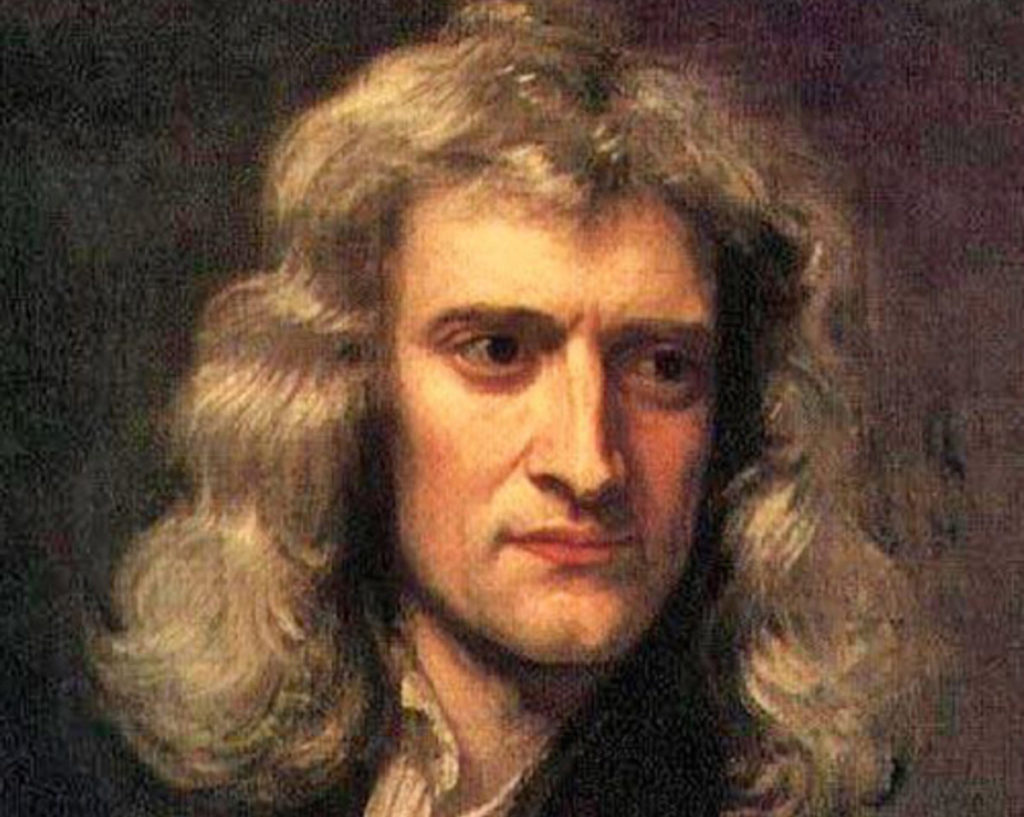I don’t know what I may seem to the world. But as to myself I seem to have been only like a boy playing on the seashore and diverting myself now and then in finding a smoother pebble or a prettier shell than the ordinary, whilst the great ocean of truth lay all undiscovered before me. – Sir Isaac Newton
Isaac Newton was a physicist and mathematician who developed the principles of modern physics, including the laws of motion and is credited as one of the great minds of the 17th-century Scientific Revolution.
Newton was born on January 4, 1643, in England. In 1687, he published his most acclaimed work, Philosophiae Naturalis Principia Mathematica (Mathematical Principles of Natural Philosophy), which has been called the single most influential book on physics. In 1705, he was knighted by Queen Anne of England, making him Sir Isaac Newton.
Newton made discoveries in optics, motion and mathematics. Newton theorized that white light was a composite of all colors of the spectrum, and that light was composed of particles.
His famous treatise: ‘Principia Naturalis’ offers an exact quantitative description of bodies in motion, with three basic but important laws of motion:
First Law
A stationary body will stay stationary unless an external force is applied to it.
Second Law
Force is equal to mass times acceleration, and a change in motion (i.e., change in speed) is proportional to the force applied.
Third Law
For every action, there is an equal and opposite reaction.
He died in 1727.


Would you like to share your thoughts?
Your email address will not be published. Required fields are marked *